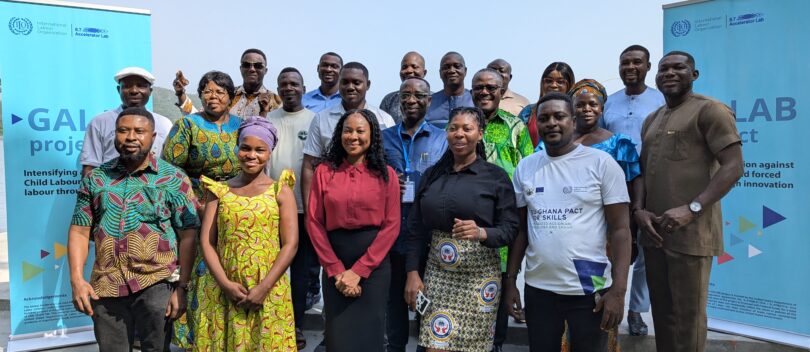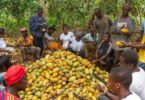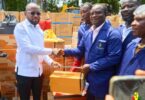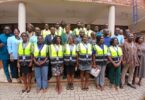Story By: Lucy Baagyei-Danso
The International Labour Organization (ILO) has deepened its commitment to eradicating child labour and forced labour on Ghana’s Volta Lake by harnessing the power of cooperatives. A recent workshop held at the Afrikiko Water Front Resort in Akosombo brought together stakeholders from the fisheries sector to explore strategies for organizing informal workers and combating these labor abuses.
The workshop forms part of the Global Accelerator Lab Project, an initiative aimed at intensifying action against child labour and forced labour. Paul Asamoah Kukwaw, the National Programme Coordinator for the project, emphasized the importance of cooperatives in addressing these issues.
“Cooperatives have a unique ability to unify informal workers, and their structure aligns perfectly with efforts to combat child labour and forced labour,” he said.
He added that the ILO has long championed cooperative development, citing its Recommendation 193 as a key guideline for fostering cooperative growth worldwide.
In Ghana, the project focuses on the artisanal fisheries sector, which operates predominantly in the informal economy. Kukwaw highlighted the collaboration with the General Agricultural Workers Union (GAWU), tasked with mobilizing informal workers in this sector. “We believe that cooperatives are a powerful avenue for organizing these workers and providing them with the tools to address child labour,” he noted.
The workshop brought together representatives from GAWU, the Fisheries Commission, social welfare officers, the Commission on Human Rights and Administrative Justice (CHRAJ), fish processors, and media. Discussions revolved around the critical role cooperatives can play in mobilizing informal sector workers to eliminate child labour and forced labour.
Participants received presentations on the structure, legal framework, and significance of cooperatives in Ghana, as well as insights into ILO Recommendation 193. A key focus was the development of practical tools and strategies for forming and managing cooperatives, along with identifying the strengths, weaknesses, opportunities, and threats that could affect their success.
The event also featured GAWU’s Torkor Model, a proven community-based approach to addressing child labour. Stakeholders explored ways to enhance its impact through broader collaboration and cooperative development. Officials from the Department of Cooperatives outlined bylaws and operational guidelines to strengthen cooperative efforts in the fisheries sector.
Akpavlo Daniel Niametor, president of the Inland Chief Fishermen, praised the partnership between the ILO and GAWU, expressing optimism about the potential of cooperatives to transform the fisheries sector. “This workshop has shown us how cooperatives can create positive change and help address child labour and forced labour effectively,” he said.
The workshop concluded with participants developing an action plan for GAWU to identify and mobilize informal workers in the fisheries sector. This plan aims to amplify the voice of cooperatives and position them as a critical tool in combatting labour abuses.
Through its collaboration with stakeholders, the ILO is fostering a unified approach to addressing child labour and forced labour on Volta Lake. The organization’s focus on cooperative development and collective action is expected to bring sustainable progress to the fisheries sector and set a benchmark for addressing similar challenges globally.
Source: www.thenewindependentonline.com








